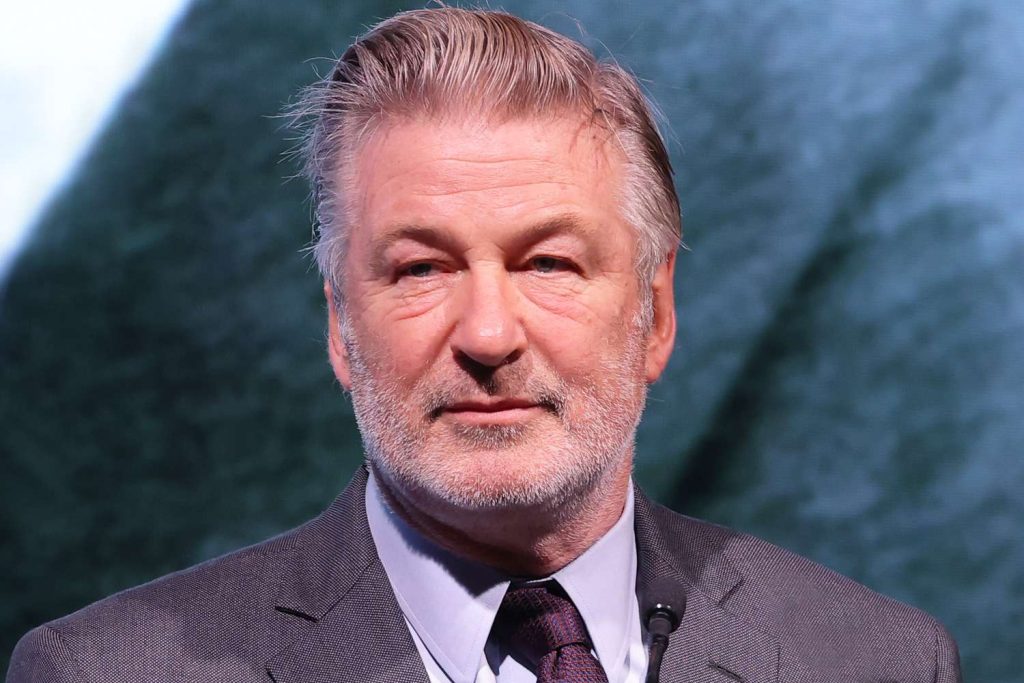A New Mexico judge has denied Alec Baldwin’s motion to dismiss the involuntary manslaughter charges against him stemming from the on-set shooting death of cinematographer Halyna Hutchins on the set of the Western film “Rust.” This decision paves the way for a trial scheduled to begin in July 2024. Let’s delve deeper into the details of the case, the judge’s ruling, and what lies ahead for Alec Baldwin.

A Fatal On-Set Incident: The “Rust” Shooting Tragedy
On October 21, 2021, tragedy struck the set of the independent film “Rust” when a prop gun fired by actor Alec Baldwin discharged a live round, fatally wounding cinematographer Halyna Hutchins and injuring director Joel Souza. The incident sparked a wave of controversy and renewed scrutiny over gun safety protocols on film sets.
Baldwin Faces Charges of Involuntary Manslaughter
Following a thorough investigation, New Mexico prosecutors charged Alec Baldwin with involuntary manslaughter in January 2023. The charges allege that Baldwin’s actions, including potentially ignoring industry safety standards and skipping crucial firearms training, contributed to the fatal shooting. The charges also point to Baldwin’s role as a producer on the film, suggesting a responsibility to ensure a safe working environment.
Baldwin’s Defense Attempts to Dismiss the Charges
Alec Baldwin’s legal team mounted a multi-pronged defense, seeking to have the involuntary manslaughter charges dismissed before trial. Their arguments centered on several key points:
- Prosecutorial Misconduct: Baldwin’s lawyers argued that prosecutors acted in bad faith by pursuing charges against him and withholding evidence that could potentially exonerate him.
- Improper Grand Jury Instruction: The defense claimed that the grand jury, which ultimately indicted Baldwin, wasn’t properly instructed on the legal elements of the case.
- Suppression of Favorable Evidence: Baldwin’s legal team alleged that prosecutors withheld evidence that could demonstrate his innocence.
Judge Rejects Dismissal Motion
In a ruling issued on Friday, May 25, 2024, Judge Mary Sommer of the New Mexico District Court rejected all of Alec Baldwin’s arguments for dismissal. Here’s a breakdown of the court’s reasoning on each point:
- Prosecutorial Misconduct: Judge Sommer found no evidence of prosecutorial misconduct, rejecting claims that prosecutors presented biased or misleading information to the grand jury.
- Grand Jury Instruction: The court sided with the prosecution, stating that the grand jury instructions were appropriate and did not prejudice the case against Baldwin.
- Suppression of Favorable Evidence: Judge Sommer ruled that prosecutors have broad discretion in presenting evidence to the grand jury and are not obligated to disclose potentially exonerating information during that stage of the legal process.
The Road Ahead: Trial Preparations and Potential Outcomes
The judge’s decision clears the path for Alec Baldwin’s involuntary manslaughter trial to proceed as planned. The trial is currently scheduled to begin on July 9, 2024. During this time, both sides will continue pre-trial preparations, including witness depositions, expert testimony analysis, and finalizing legal strategies.
If convicted of involuntary manslaughter, Alec Baldwin faces a maximum sentence of 18 months in prison and a fine of up to $5,000. However, it’s important to note that this is the maximum penalty, and sentencing guidelines and potential plea bargains could result in a lesser punishment.
Impact on the Film Industry and Gun Safety on Sets
The “Rust” shooting tragedy and the subsequent legal proceedings surrounding Alec Baldwin have ignited a significant conversation about gun safety protocols on film sets. Industry leaders, filmmakers, and actors are re-evaluating safety measures and pushing for stricter regulations to prevent similar tragedies from occurring in the future.




